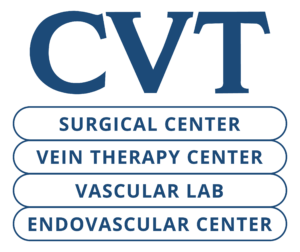Venous disease affects millions worldwide, causing discomfort, pain, and potential complications. While lifestyle factors such as obesity, prolonged sitting, and lack of exercise are commonly associated with venous issues, emerging research highlights the role of genetics in this condition. In this blog, we delve into genetics and its influence on venous disease, shedding light on how our genes can contribute to its development and progression.
Understanding Venous Disease
Before we dive into the genetic aspects, let’s briefly recap what venous disease entails. Venous disease encompasses various conditions, including varicose veins, deep vein thrombosis (DVT), and chronic venous insufficiency (CVI). These conditions arise from compromised blood flow in the veins, leading to symptoms like leg swelling, pain, heaviness, and in severe cases, ulcers or blood clots.
The Genetic Link in Venous Disease
Research suggests that genetics play a significant role in determining an individual’s susceptibility to venous disease. Studies have shown that individuals with a family history of venous issues are at a higher risk of developing similar conditions. The hereditary component of venous disease can be attributed to specific genes involved in blood vessel structure, clotting factors, and inflammation regulation.
Genetic Influence on Blood Vessel Structure in Venous Disease
Certain genetic variations can affect the structural integrity of blood vessels, predisposing individuals to venous disease. Collagen and elastin are essential proteins that provide strength and elasticity to blood vessel walls. Variations in genes responsible for producing these proteins can lead to weakened vein walls and an increased risk of developing varicose veins or venous insufficiency.
Genes and Coagulation Factors in Venous Disease
Blood clotting is a crucial process that helps prevent excessive bleeding. However, genetic variations in clotting factors can disrupt this balance and increase the likelihood of abnormal blood clot formation, contributing to deep vein thrombosis (DVT). Specific gene mutations, such as those in the Factor V Leiden gene, have been associated with an increased risk of DVT.
Inflammation and Genetic Influences of Venous Disease
Chronic inflammation is considered a key contributor to venous disease. Genetic variations can influence the body’s inflammatory response, potentially leading to heightened inflammation within blood vessels. This chronic inflammation may contribute to the development and progression of venous disease, including varicose veins and chronic venous insufficiency.
The Importance of Genetic Testing
Understanding the genetic factors in venous disease can aid in early detection, risk assessment, and personalized treatment plans. Genetic testing can help identify specific gene variations associated with an increased risk of venous disease. This information enables healthcare professionals to tailor preventive measures and interventions to mitigate the risk or manage the condition effectively.
While lifestyle factors remain crucial in the development of venous disease, the role of genetics is increasingly gaining recognition. Genetic variations influencing blood vessel structure, clotting factors, and inflammatory responses contribute to an individual’s susceptibility to venous issues. Incorporating genetic testing into clinical practice can provide valuable insights for early detection, risk assessment, and personalized venous disease treatment strategies. By unraveling the genetic complexities of venous disease, we move closer to a future where prevention and targeted interventions can improve outcomes and enhance the quality of life for at-risk individuals.
At CVT Surgical Center, our unwavering dedication lies in delivering cutting-edge solutions for vascular conditions, particularly venous disease. With a rich legacy dating back to 1957, CVT Surgical Center has consistently led the way in providing top-notch care for vascular disorders. Drs. Mike Davis, Michael Conners, James McNeil, Gulrez Mahmood, and Matthew Abate spearhead our team, offering state-of-the-art expertise in managing all facets of vascular disease. Trust us to prioritize your well-being and provide unparalleled treatment for your vascular needs.

